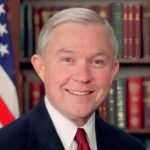Evangelist Franklin Graham, on his way to Puerto Rico for the Billy Graham Evangelistic Association’s first Festival of Hope event in 2017, said Wednesday on social media that God uses “extreme vetting” in deciding who gets into heaven.
“I’m on my way to Puerto Rico — to warn people that God uses extreme vetting,” Graham posted on Facebook the day after the Ninth U.S. Circuit Court of Appeals heard oral arguments about whether to uphold President Trump’s executive order barring immigrants from seven predominantly Muslim countries from entering the United States.
Graham, who in addition to serving as successor to his father’s evangelistic empire runs the Christian humanitarian organization Samaritan’s Purse, went on to explain how the term used by Trump to describe his administration’s plan to combat terrorism applies to the heavenly realm.
“I want the people of Puerto Rico to know that God loves them and that there is only one way to enter the gates of heaven — and that is through faith in Jesus Christ, and Him alone,” Graham wrote. “Good works can’t get you into heaven. Religion can’t either — being a Baptist, a Catholic, or a Methodist, can’t save you. Jesus said, ‘I am the way, the truth, and the life. No one comes to the Father except through Me.’”
Graham recently drew criticism for downplaying concerns about the president’s travel ban by calling it “not a Bible issue.” The Baptist Churches of Puerto Rico responded by withdrawing support for the Feb. 10-12 Festival of Hope in San Juan, terming Graham’s support of Trump’s anti-immigration stance “contrary to the values of the Kingdom.”
Graham said his purpose for going to the Caribbean island and unincorporated U.S. territory is to help Puerto Ricans one day “immigrate” from this life to the next.
“I want Puerto Ricans by the thousands — and people everywhere — to have their immigration status in Heaven stamped and sealed with the blood of Jesus Christ for all eternity,” the evangelist said.
On Thursday Graham congratulated controversial Trump nominee Sen. Jeff Sessions on his confirmation as U.S. attorney general.
“I’ve had the privilege of meeting him, and I believe he’s a man of honor and integrity who will always be seeking to do what is right,” Graham described Sessions. “Pray for him as he is sworn in this morning and begins the responsibilities of this new role.”
Sessions, a Republican from Alabama, was confirmed Wednesday after a contentious hearing that included procedural silencing of Sen. Elizabeth Warren (D-Mass.) while she read a letter from Coretta Scott King opposing Sessions’ nomination as a federal judge in 1986.
Americans United for Separation of Church and State criticized the Senate’s confirmation of Sessions, questioning his support for religious freedom for all Americans.
The religious liberty watchdog group based in Washington said Feb. 8 that Sessions has called the separation of church and state “unhistorical and unconstitutional,” supported unconstitutional government prayers and religious displays and “demonstrated bias against Muslims and support for anti-Muslim groups.”
“Separation of church and state is the basis for religious freedom in America,” said AU Executive Director Barry Lynn, an ordained minister in the United Church of Christ. “Sessions has made it abundantly clear that he doesn’t support that principle. That fact alone makes him unsuited for the country’s top legal job.”
As chairman of the Subcommittee on Immigration and the National Interest, Sessions was a leading opponent to the Obama administration’s plans to allow greater numbers of refugees into the United States. He often invoked existing refugee programs as a potential terrorist threat.
In 2011 Sessions supported Alabama’s HB-56, the nation’s toughest anti-immigration law, which among other things made it a crime for an individual to assist an undocumented alien. Months later lawmakers began rolling back some of the harsher provisions, citing unintended consequences including the possibility that churches might be subject to prosecution for ministering to Hispanics in their community.
A Cooperative Baptist Fellowship minister opposed to Sessions’ confirmation recently summarized the bill’s effect as “making the job of clergy and the command of Christ Jesus to love your neighbor illegal in the eyes of the state.”
Previous stories:
Baptists withdraw support for Franklin Graham rally in Puerto Rico
CBF minister joins anti-Sessions march
Previous commentary:


